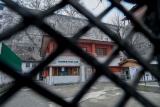
Interviewing in the aftermath of trauma
Death, violence, war, terrorism, natural disaster, the COVID-19 pandemic - at some point within the past year many journalists within Asia Pacific will have reported on a story involving interviewees who had experienced a traumatic event. There is no infallible method for interviewing survivors and witnesses to trauma, Each case is unique and presents its own challenges. But this tip sheet brings together the collective experience of the Dart Centre Asia Pacific’s principal trainers to provide some general advice for interviewing in the aftermath of trauma, and recommendations for before, during, and after the interview.


